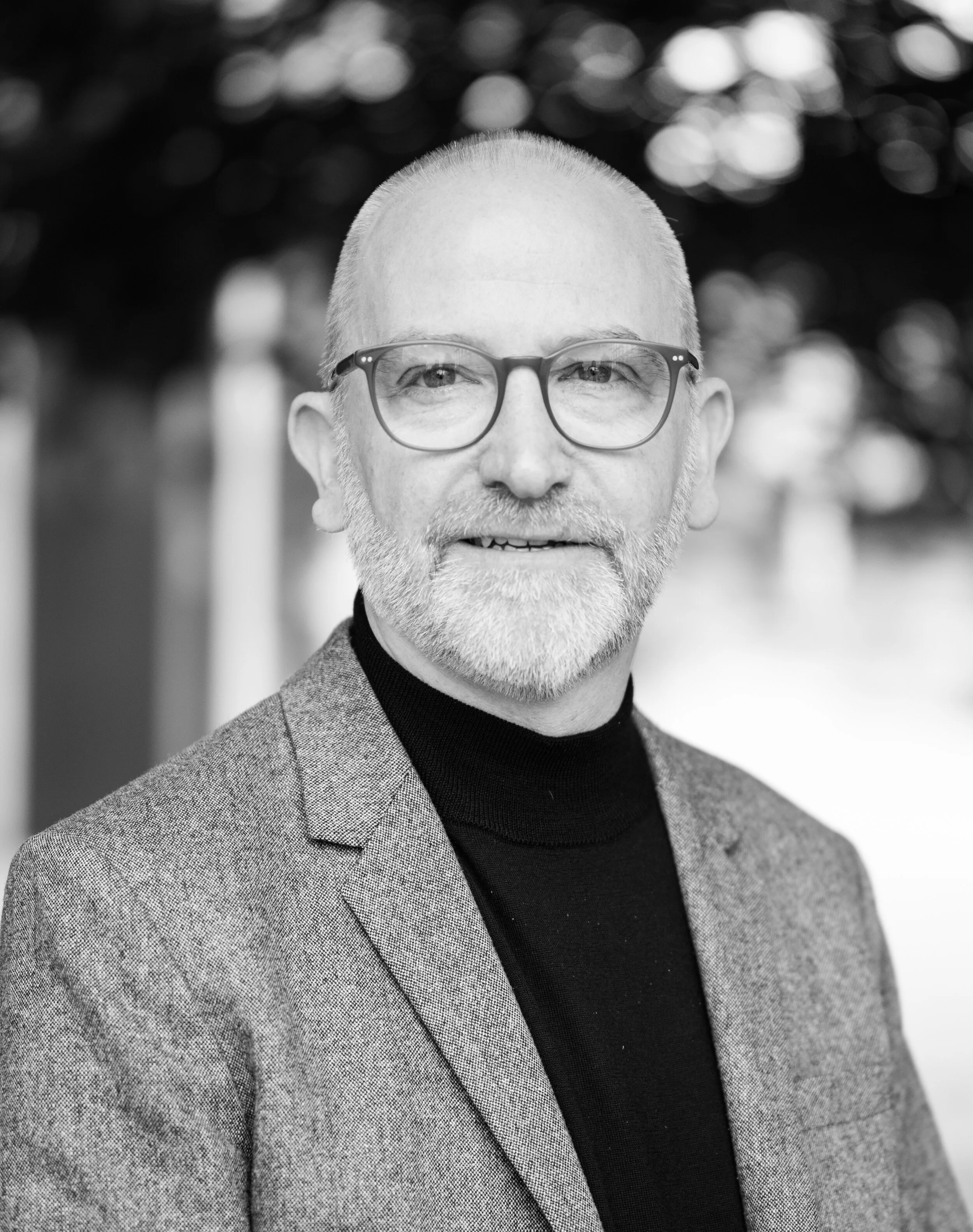Below you'll find brief biographies for our regular panel members, with links to further reading. If the panel member's on Twitter, you'll find their handle beneath their photo.
DAVID RUNCIMAN
Professor David Runciman was Head of the University of Cambridge's Department of Politics and International Studies (POLIS) from October 2014 to October 2018. He gave his Inaugural Lecture on "Political Theory and Real Politics in the Age of the Internet" on Tuesday 24th February 2015, which can be viewed online here. His research interests are in twentieth century political thought, particularly ideas of democracy and crisis, and the role of technology in contemporary politics. David's new book is How Democracy Ends, published by Profile. His recent Darwin lecture on Trump as conspiracy theorist can be seen here. David also writes regularly about politics for the London Review of Books.
HELEN THOMPSON
Helen Thompson moved to Cambridge in 1994, and works in the Department of Politics and International Studies. She is interested in the political economy of the present predicaments facing western politics including their relationship to geopolitics. Since 2008 she has worked on questions generated by the 2008 financial crash and the eurozone crisis, including their historical origins in the fallout of the economic and political crises of the 1970s. Her most recent book is Oil And The Western Economic Crisis, published by Palgrave. Her article ‘Inevitability and contingency: the political economy of Brexit,’ won the 2017 prize for best article in the British Journal of Politics and International Relations.
CHRISTOPHER BROOKE
Christopher Brooke is University Senior Lecturer in Political Theory in the Department of Politics and International Studies at the University of Cambridge, and a Fellow of Homerton College, where he is Director of Studies in Politics, having earlier worked at the Universities of Oxford and Bristol, and studied at Oxford and Harvard. He is the author of Philosophic Pride: Stoicism and Political Thought from Lipsius to Rousseau (2012), and his new edition of Thomas Hobbes’s Leviathan was published by Penguin in 2017.
CHRIS BICKERTON
Chris Bickerton is a Reader in Modern European politics at the University of Cambridge and a fellow of Queens’ College, Cambridge. Educated at the universities of Oxford and Geneva, he taught previously at the University of Amsterdam and Sciences Po, Paris. He has written widely on European politics and is the author of the best-selling book, The European Union: A Citizen’s Guide (Penguin). He has written for the Financial Times, Foreign Affairs, New York Times, The Guardian, Prospect, New Statesman, The Big Issue and the Monde Diplomatique, and is currently writing a book on populism, technocracy and the crisis of party democracy.
CATHERINE BARNARD
Catherine Barnard is Professor of EU Law and Employment Law, and senior tutor and fellow of Trinity College. She is the author of EU Employment Law (Oxford, OUP, 2012, 5th ed.), The Substantive Law of the EU: The Four Freedoms, (Oxford, OUP, 2016, 5th ed), and (with Peers ed), European Union Law (Oxford, OUP, 2017, 2nd ed) . She is a member of the European Commission funded European Labour Law Network (ELLN), and is also a Senior Fellow in the UK in a Changing Europe project – an authoritative, non-partisan think tank which does research and provides information about all aspects of Brexit. Catherine has given evidence to numerous select committees on the legal issues connected with Brexit, immigration and the European Union (Withdrawal) Act. She also has her own podcast, 2903cb.
KENNETH ARMSTRONG
Kenneth Armstrong was elected to the Professorship of European Law at the University of Cambridge in 2013, having previously been Professor of European Union Law at Queen Mary University of London. His research focus has been on issues of governance in a European context including work on EU social and economic governance. In more recent times his attention has turned to “Brexit” and in 2017 he published Brexit Time: Leaving the EU – Why, How and When? with Cambridge University Press. His blog brexitime.com provides a running commentary on legal and political developments relating to Brexit. Kenneth holds a Leverhulme Trust Major Research Fellowship for a project called The Brexit Effect – Convergence, Divergence and Variation in UK Regulatory Policy.
LUCIA RUBINELLI
Lucia Rubinelli is Research and Teaching Fellow (JRF) at Robinson College and Polis, University of Cambridge. She studied at the university of Trieste, the London School of Economics, the Ecole des Hautes Etudes en Sciences Sociales in Paris and the University of Cambridge, and has previously taught at the LSE. She writes on the history of nineteenth and twentieth century political thought in Europe, with a specific focus on France and Italy. Her first book Constituent Power: A History is forthcoming with Cambridge University Press.
GARY GERSTLE
Gary Gerstle is the Paul Mellon Professor of American History at the University of Cambridge, where he has taught since 2014, and a Fellow of the British Academy. He is a political and cultural historian of the US, primarily focused on the twentieth century. His publications include two prizewinners, Liberty and Coercion: The Paradox of American Government from the Founding to the Present (2015), and American Crucible: Race and Nation in the Twentieth Century (2017), for which he has written a new chapter on race and nation in the era of Obama and Trump. His Liberty and Coercion book became the basis for a four-part radio series, America: Laboratory of Democracy, that aired on BBC World Service and National Public Radio in late 2017 and early 2018. Gary is currently writing The Rise and Fall of America’s Neoliberal Order, 1970-2020.
AARON RAPPORT
Very sadly, Dr Aaron Rapport passed away on Thursday 27 June 2019, aged 38 years. The entire Talking Politics team is profoundly saddened at the loss, and extend our heartfelt sympathies to his friends and family. An extended tribute to Aaron can be found here.








